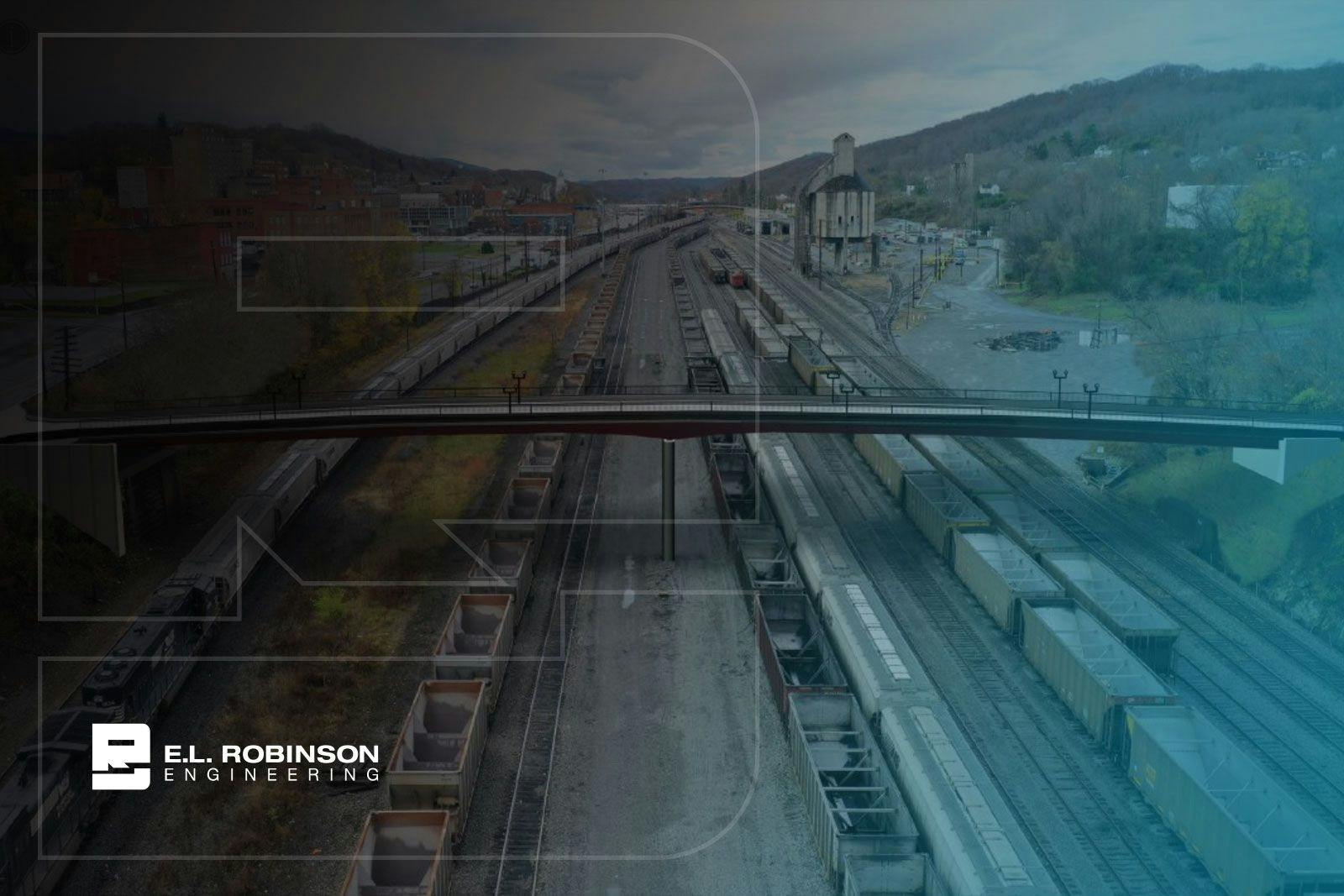June 12, 2023Building Resilient Infrastructure and Communities

ELR Work Featured in EPA Article on the USDOT “Reconnecting Communities” Project
ELR is a key player in building resilient infrastructure and communities to preserve and expand access to vital resources. Our team supports everything from winning capital grants and engineering studies to planning and environmental services.
We’re thrilled to have been part of a grant application process that resulted in the first-round selection of Bluefield WV to receive a Reconnecting Community planning grant. In fact, Bluefield was recognized as one of three featured stories in a recent United States Department of Transportation (USDOT) spotlight, “Past, Present, and Future of Reconnecting Communities.” The story map details three exemplary projects proposed and funded under the auspices of a massive bipartisan infrastructure law and the related five-year $1 billion Reconnecting Communities Pilot (RCP) grant program.
As outlined in the article, “the program funds removing, retrofitting, or mitigating transportation facilities like highways or rail lines that create barriers to mobility, access, or economic development through technical assistance and grant funding for planning and capital construction projects that reconnect communities and improve people’s lives.”
Past federal highway policies led to development that had negative and inequitable impacts on minority and low-income communities, in many cases diminishing, destroying, or isolating historic sites and previously vibrant neighborhoods. The RCP Program was the first-ever national answer to these challenges, enabling new national funding for building resilient infrastructure and communities.
The Big Picture: Building Resilient Infrastructures and Communities
The big picture of building or restoring resilient infrastructures and communities is massive and complex, requiring extensive collaboration across many entities, from citizens to government, historians to environmental scientists, and engineers to architects. Competing or short-sighted priorities can have a devastating effect in the long run, and even when the effect is positive, what was once best for a community can begin to work against it over time. Doing it right takes meticulous effort and diverse expertise.
Case in point: the Bluefield, West Virginia community highlighted on the USDOT website. Once a thriving African American community built around the railroad and coal industries, Bluefield is home to Bluefield State University, a long-standing historically black college, and two historic hotels, Thelma’s and Traveler’s, famously listed in the Green Book travel guide as safe places for black musicians and others to stay.
Bridges that once kept the African American population connected to the city proper on the other side of the formidable railroad tracks that had helped build the community began to fall into disrepair after decades of use. With the railroad industry and coal economy also in decline, the community began to suffer from a lack of funding and other resources.
As we seek to reconnect and rebuild, our challenge and opportunity is to consider all potential impacts through planning studies like the one approved in the Reconnecting Communities planning grant and work with all stakeholders to help rebuild or build resilient infrastructures and communities for the future.
Down to the Details: How We Help from the Ground Up
Our team has years of experience across the spectrum of areas of expertise required to effectively build resilient infrastructure and communities. That includes direct experience working on the government side through entities like the West Virginia Department of Transportation (WVDOT) and policy work like the National Environmental Policy Act (NEPA). Prime contractors like AECOM bring us in on significant projects like Bluefield, WV because we understand the full stakeholder ecosystem and the intersection of solutions.
For Bluefield, former WVDOT Secretary/Commissioner and current E.L. Robinson (ELR) Business Development Manager, Paul Mattox, P.E., and Todd Schoolcraft, Landscape Architecture Manager were instrumental in the grant writing effort that led to the funding approval in the RCP program. Douglas Parker from ELR’s Transportation Planning and Environmental Practice assisted with providing the historical context of the Bluefield community to ensure that the planning grant came together in the best interest of the community.
Planning and Grant Writing
Building resilient infrastructure and communities starts well before the first shovel hits the ground. It requires substantial evaluation and planning just to write the grant proposal to win the funding and secure the work in the first place.
AECOM relied on the collective experience of our nationally-recognized engineers and planners to provide useful community context and our on-the-ground knowledge of infrastructure needs in Bluefield to write the winning grant.
Engineering Studies
Once the inputs and constraints are known and plans and contingencies are in place, engineering studies provide the necessary information to scope and design the work. Our expertise and advanced technological resources in transportation engineering underpin transportation solutions that gain or preserve community resilience, maximize efficiency, and meet today’s stringent environmental requirements while maintaining feasibility.
Leaving No Stone Unturned
With stakes as high as the well-being and livelihood of struggling communities and the preservation of the environment and historic landmarks, we leave no stone unturned. Communities like Bluefield and partners like AECOM depend on that. We’re incredibly proud to be an instrumental contributor to Bluefield and other RCP-supported projects.
To learn more about how we are supporting building resilient infrastructure and communities through environmental planning and transportation engineering, contact us or reach out to Paul Mattox or Leigh Lane.
Click here to read the USDOT Reconnecting Communities article.